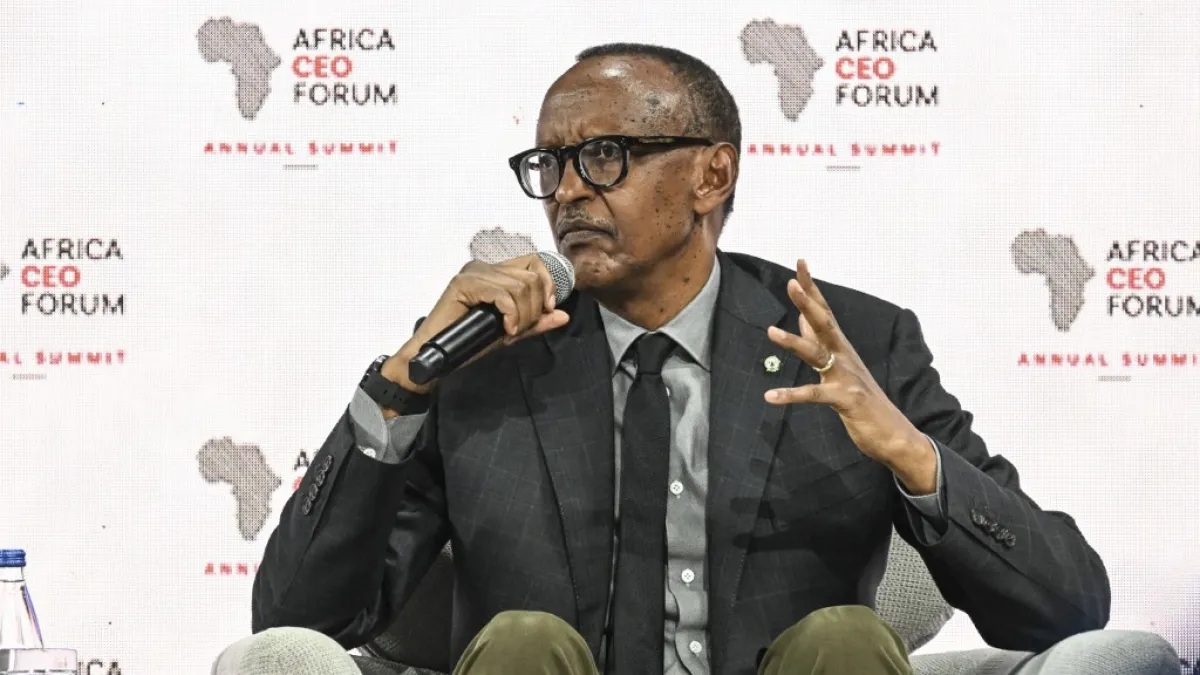In a recent development aimed at curbing years of conflict in Central Africa, Rwandan President Paul Kagame has cautiously welcomed a peace agreement brokered by the United States between Rwanda and the Democratic Republic of the Congo (DRC).
However, Kagame made it clear that while Kigali is committed to the deal, it will not hesitate to respond forcefully if its security interests are threatened.
Speaking at a press conference in Kigali on Friday, July 4, 2025, Kagame expressed guarded optimism about the peace deal, which was signed last week under the auspices of the Trump administration.
The agreement calls for the withdrawal of Rwandan troops from eastern DRC within 90 days, a region that has been a hotbed of violence for years.
Yet, Kagame voiced doubts about whether Kinshasa would fully honor its commitments, emphasizing that Rwanda remains prepared to defend itself should provocations arise.
“If the side we are working with plays tricks and drags us back into conflict, then we will deal with the problem as we have always done,” Kagame warned, highlighting the delicate nature of the truce.
The eastern DRC has endured intense fighting, particularly this year, with the rebel group M23 making significant territorial gains.
The United Nations has accused Rwanda of supporting M23 militarily by deploying thousands of troops, an allegation Kigali firmly denies.
Despite the new agreement, analysts caution that lasting peace may be elusive.
This is especially since M23 has openly stated it does not recognize the terms of the US-backed deal.
Rwanda’s Security Concerns and the Role of the FDLR
Rwanda insists its military involvement in eastern DRC is a defensive measure against the Democratic Forces for the Liberation of Rwanda (FDLR).
FDLR is a militia mainly composed of ethnic Hutu fighters linked to the 1994 Rwandan genocide.
The FDLR has long been a thorn in Kigali’s side, accused of cross-border attacks and destabilizing the region.
President Kagame underscored the need for the Congolese government to take decisive action against the FDLR if the peace deal is to succeed.
“We appreciate the efforts of the Trump administration in facilitating this agreement,” Kagame said.
“But if it doesn’t work, the blame should not fall on them.”
Kinshasa has yet to issue an official response, though it has repeatedly accused Rwanda of fueling the conflict by backing rebel groups.
The M23 rebels remain the most visible and powerful armed faction in eastern DRC.
Their early-year offensive left many towns in ruins and resulted in a humanitarian crisis that has displaced more than seven million people.
The United Nations describes this as “one of the most protracted, complex, and severe humanitarian crises on Earth.”
M23’s Role and Ongoing Peace Talks
Notably, M23 was absent from the US-mediated peace talks, a factor that experts say could complicate the implementation of the agreement.
However, on Thursday, representatives from both the Congolese government and M23 agreed to reconvene in Qatar for further discussions aimed at ending hostilities.
Meanwhile, Washington has proposed a parallel economic initiative designed to encourage Western investment in the region’s rich natural resources, such as tantalum, copper, and gold.
These minerals have historically played a significant role in fueling conflict in eastern DRC, with various armed groups profiting from their extraction and trade.
Kagame’s Public Reappearance and Health Speculation
Friday’s press conference marked President Kagame’s first public appearance since early June, sparking speculation about his health during his absence.
Critics and dissidents abroad, including former advisor David Himbara, suggested that Kagame might be seriously ill.
Addressing the rumors with characteristic wit, Kagame dismissed the speculation lightheartedly.
“Some of my personal health problems might come from managing you people,” he joked, drawing laughter from the audience.
“What’s the issue?
“Should people expect me to be anything other than human?” he added, reassuring the public with his composed demeanor.
Throughout the briefing, Kagame appeared robust and in good health, putting to rest concerns about his wellbeing.
The US-brokered peace agreement represents a significant step toward stabilizing a volatile region that has been ravaged by decades of conflict.
Yet, the lingering mistrust between Kigali and Kinshasa, combined with the exclusion of key armed groups like M23 from the talks, means that the road to lasting peace remains fraught with challenges.
For now, Rwanda’s cautious embrace of the deal paired with its firm stance on self-defense underscores the fragile balance of power in the Great Lakes region.
It is a balance that will require continued diplomatic efforts, vigilant implementation of agreements, and a genuine commitment from all parties involved.



